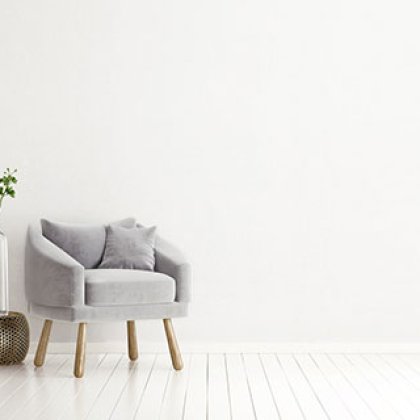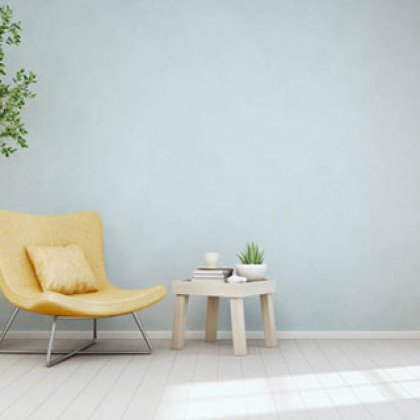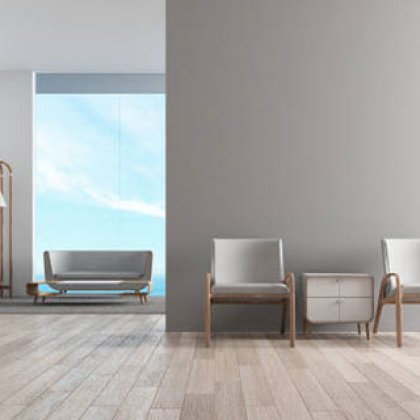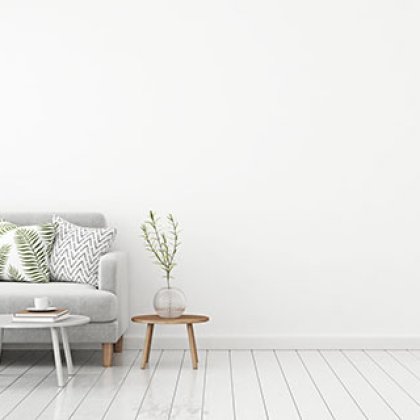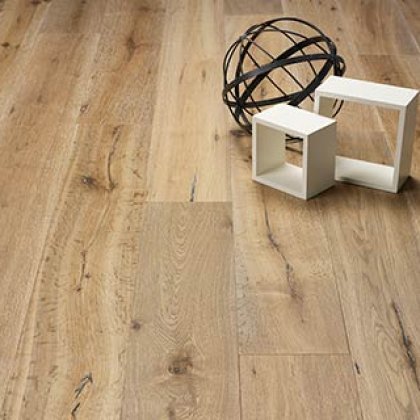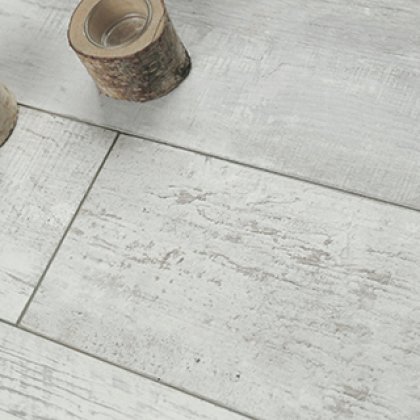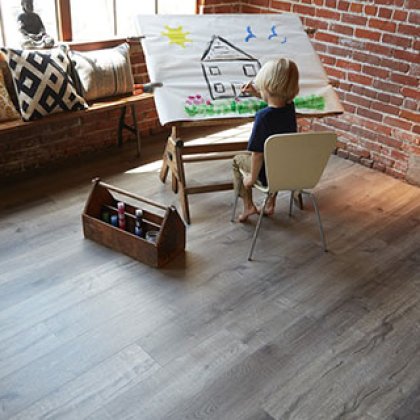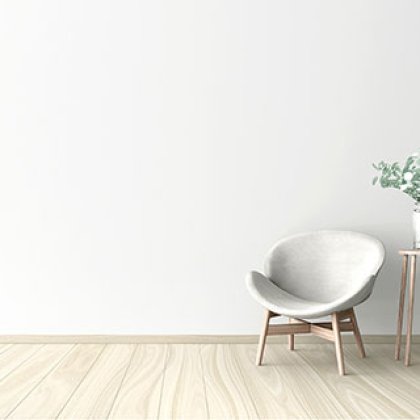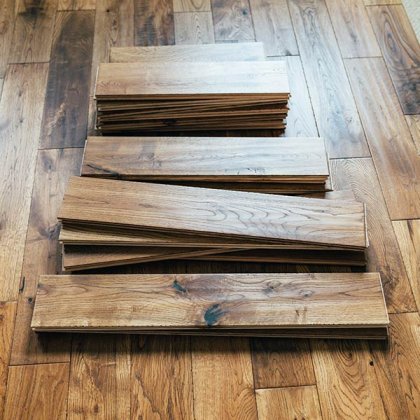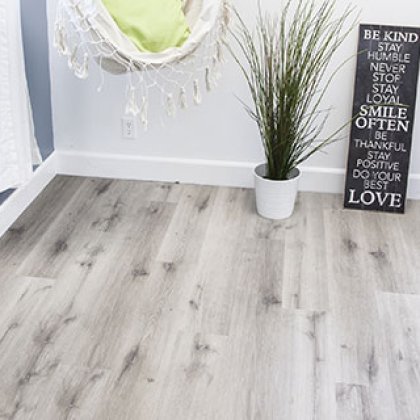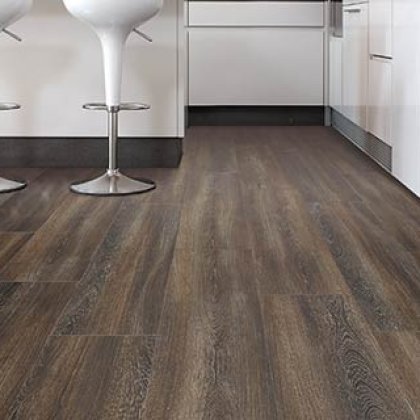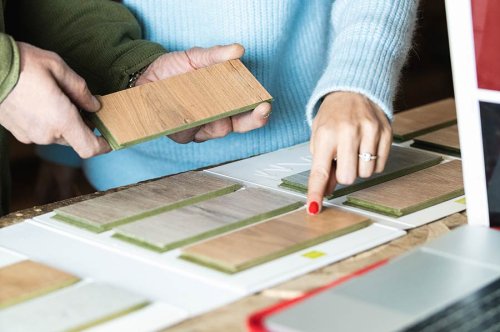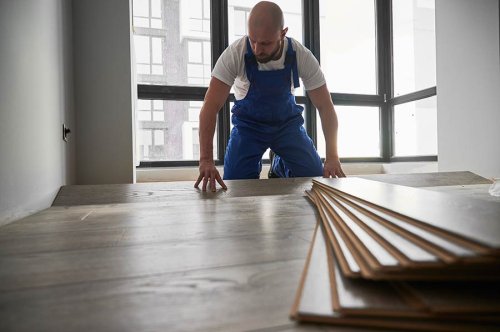Vinyl Flooring Planks: A Complete Guide
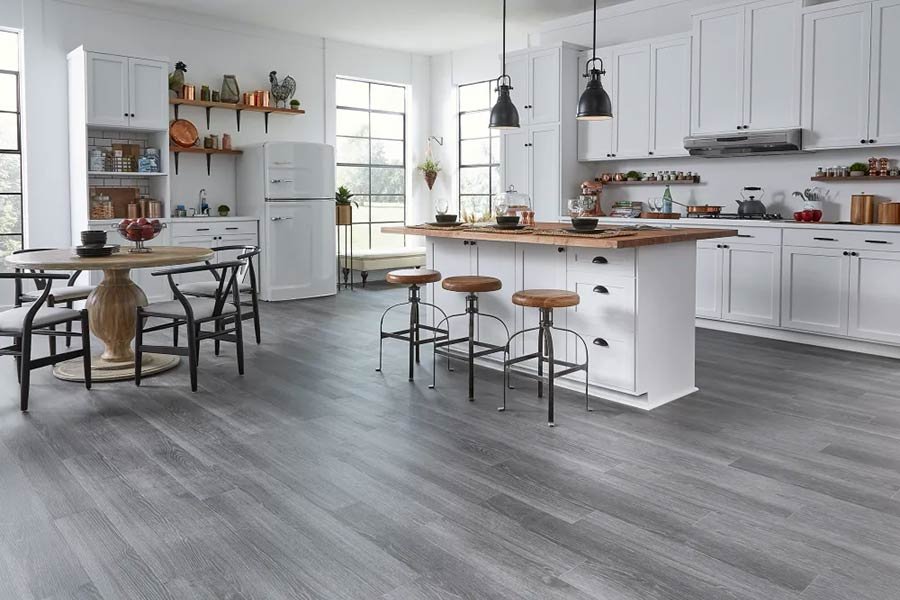
Vinyl planks have become famous for home renovation projects due to their durability, versatility, and affordability. Whether you're looking to update your kitchen, bathroom, or any other homeroom, vinyl plank offers a range of options that suit your style and budget. This guide will teach you everything you need about vinyl plank, including the different types, installation process, and maintenance tips. Whether you're a seasoned DIYer or hiring a professional, this comprehensive guide will help you make an informed decision and achieve the look you want for your home renovation project.
Definition of vinyl plank
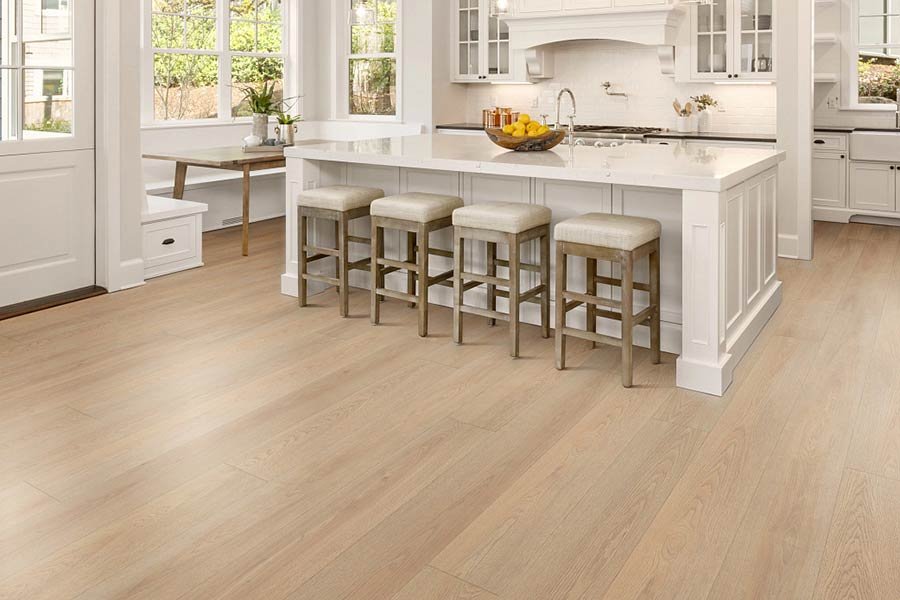
vinyl planks are floor covers made from synthetic material, typically polyvinyl chloride (PVC). They are designed to resemble hardwood, stone, or other natural materials but offer several benefits over traditional flooring options.
Vinyl planks are waterproof and highly durable, making them ideal for use in high-traffic and moisture-prone areas like kitchens and bathrooms. They are also easy to clean and maintain, with a simple mopping or sweeping required to keep them looking like new.
In addition to their functional benefits, vinyl planks come in various colors, textures, and patterns, allowing homeowners to create a unique and personalized look. They are also relatively easy to install, with many planks having a click-and-lock system that makes installation a breeze.
Overall, vinyl planks are a versatile, low-maintenance, and cost-effective alternative to traditional flooring options, making them a popular choice for home renovation projects.
Benefits of vinyl plank
vinyl planks offer a range of benefits, making them a popular choice for homeowners looking to update their floors. Some of the key benefits of vinyl plank include the following:
-
Durability: vinyl plank is highly durable and resistant to wear and tear, making them ideal for high-traffic areas.
-
Water-resistant: vinyl planks are waterproof, making them perfect for moisture-prone rooms like kitchens and bathrooms.
-
Straightforward to maintain: vinyl planks are easy to clean and maintain, with simple mopping or sweeping required to keep them looking new.
-
Cost-effective: Compared to other flooring options, vinyl planks are relatively affordable, making them a budget-friendly choice for home renovation projects.
-
Versatile design options: vinyl plank come in a wide range of colors, textures, and patterns, allowing homeowners to create a personalized look in their homes.
-
Easy to install: Many vinyl planks have a click-and-lock system that makes installation a breeze, even for DIYers.
-
Eco-friendly: vinyl planks are made from synthetic materials, making them more eco-friendly than traditional materials like hardwood or stone.
Overall, the benefits of vinyl plank make them a popular choice for home renovation projects. Whether you're looking for a durable, low-maintenance, and cost-effective option, the vinyl plank may be the perfect choice for your home.
Types of vinyl plank
vinyl plank come in various styles, each with unique features and benefits. The main types of vinyl plank include:
Luxury Vinyl Planks (LVP):
These high-end vinyl planks mimic the look and feel of natural materials like hardwood and stone.
Rigid Core Vinyl Planks (RCP):
These are thicker and more durable vinyl planks suitable for heavy traffic and high-moisture areas.
WPC Vinyl Planks:
WPC stands for Wood Plastic Composite, and these planks are made of a blend of wood pulp and PVC. They are known for their stability and durability.
Stone Plastic Composite (SPC) Vinyl Planks:
These are made from a combination of natural minerals and PVC, making them a budget-friendly alternative to natural stone flooring.
Each type of vinyl flooring plank offers unique features and benefits, so it's essential to consider your specific needs and preferences when choosing the right style for your home renovation project.
Advantages of vinyl plank
vinyl planks offer a range of gifts, making them a popular choice for homeowners looking to update their floors. Some of the critical benefits of vinyl plank include the following:
Durability:
Vinyl planks are highly durable and resistant to wear and tear, making them ideal for high-traffic areas. They can withstand heavy foot traffic, furniture movement, and spills, making them an excellent choice for busy households.
Water-resistant:
Vinyl planks are waterproof and ideal for moisture-prone areas like kitchens and bathrooms. This makes them an excellent choice for homes with children or pets, as spills and accidents can easily be cleaned up without damaging the floor.
Easy to maintain:
Vinyl planks are easy to clean and maintain, with simple mopping or sweeping required to keep them looking new. They are also resistant to scratches, stains, and fading, so they will retain their original look for years to come.
Cost-effective:
Compared to other flooring options, vinyl planks are relatively affordable, making them a budget-friendly choice for home renovation projects. They are also an excellent option for renters, as they can be easily removed and replaced without causing damage to the underlying floor.
Versatile design options:
Vinyl planks come in a wide range of colors, textures, and patterns, allowing homeowners to create a personalized look. From classic hardwood to trendy stone patterns, there is a vinyl flooring plank to suit any style and decor.
Easy to install:
Many vinyl planks have a click-and-lock system that makes installation a breeze, even for DIYers. They can be installed over most existing flooring surfaces, saving time and money on preparation and removal costs.
Eco-friendly:
Vinyl planks are made from synthetic materials, making them more eco-friendly than traditional materials like hardwood or stone. They also require less maintenance and cleaning products, reducing the environmental impact.
Overall, the advantages of vinyl plank make them a popular choice for home renovation projects. Whether you're looking for a durable, low-maintenance, and cost-effective option, the vinyl plank may be the perfect choice for your home.
Factors to Consider When Choosing vinyl plank
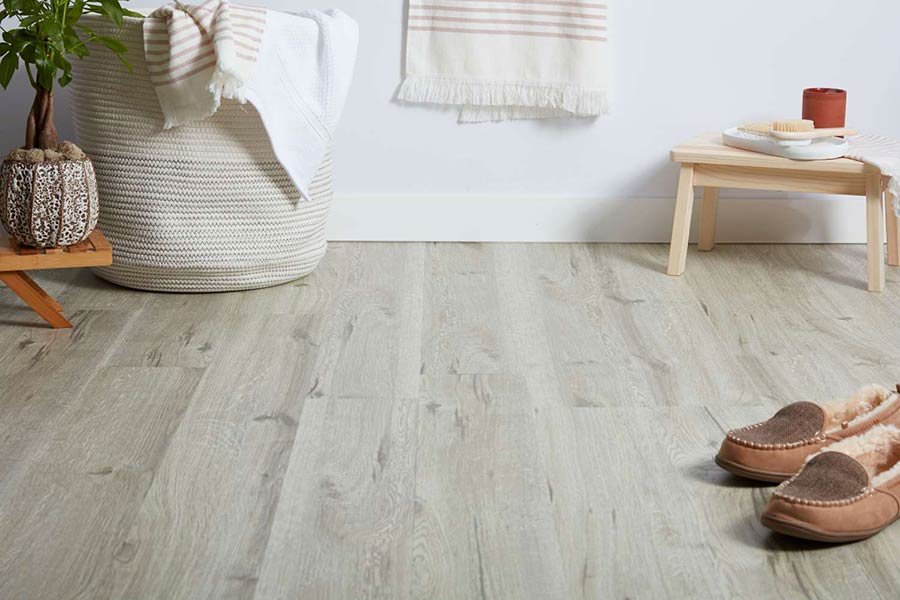
When choosing vinyl plank for your home renovation project, several important factors must be considered to ensure you make the right choice. Some of the critical factors to consider include the following:
Room usage:
Consider the intended usage of the room where the vinyl plank will be installed. If it's a high-traffic area, look for durable planks resistant to wear and tear. If it's a moisture-prone area, choose waterproof planks.
Style and design:
Vinyl planks come in various styles and designs, from classic hardwood to trendy stone patterns. Consider your style and the room's overall decor when choosing a plan.
Cost:
Vinyl planks are generally more affordable than other flooring options, but the cost can vary depending on the type and quality of the planks. Consider your budget and what you're willing to spend to ensure you choose planks that fit your financial constraints.
Installation:
Consider the ease of installation when choosing vinyl plank. Some planks have a click-and-lock system that makes installation a breeze, while others may require more advanced skills. Make sure you select planks that you feel comfortable installing or that you can have professionally installed.
Maintenance:
Vinyl planks are low-maintenance, but some types may require more care and attention than others. Consider the time and effort you're willing to invest in maintaining your floors when choosing vinyl plank.
Environment:
Consider the environmental impact of the vinyl plank you choose. Some types of planks are more eco-friendly than others, so consider your values and what you're willing to do to reduce your environmental impact.
Warranty:
Finally, consider the warranty offered by the manufacturer. Make sure you choose planks with a warranty covering any defects or damage that may occur during installation or everyday use.
Considering these factors, you can decide which vinyl plank is suitable for your home renovation project. With so many options available, it's essential to take the time to research and compare the different types of planks to ensure you choose the best one for your needs.
Installation Process vinyl plank
The installation process of vinyl planks varies depending on the type of planks and the subfloor they will be installed on, but generally, the process is relatively straightforward. Here are the steps involved in installing vinyl plank:
Prepare the subfloor:
The first step in installing vinyl plank is to prepare the subfloor. The subfloor should be clean, dry, and level, with any existing flooring, removed. Any imperfections or unevenness should be addressed, as these will affect the final look and performance of the flooring.
Plan the layout:
Once the subfloor is prepared, plan the layout of the vinyl plank. Start in the center of the room and work your way out, ensuring that the planks are spaced evenly and that cuts are made at the room's edges.
Install the underlayment:
An underlayment may be required depending on the type of vinyl plank and the subfloor. The underlayment acts as a cushion between the subfloor and the planks and helps to absorb sound and prevent moisture from seeping into the subfloor.
Lay the planks:
Once the underlayment is installed, lay the vinyl plank and follow the planned layout. For click-and-lock planks, click the planks together, making sure they are securely locked in place. For other planks, adhesive or fasteners may be required to hold the planks in place.
Cut the planks:
You may need to cut the planks to fit as you work your way to the room's edges. Use a utility knife or saw to make precise cuts, following the manufacturer's guidelines for cutting the planks.
Trim and finish:
Once all the planks are in place, trim and finish the room's edges using a transition strip or other finishing material. This will give the floor a neat and professional look and help prevent the planks from separating over time.
Clean and maintain:
Finally, clean the floor thoroughly and maintain it according to the manufacturer's instructions. Regular cleaning and maintenance will help keep the floor looking new for years to come.
Installing vinyl plank is a relatively straightforward process that most DIYers can complete with a few essential tools. However, if you're not confident in your ability to install the flooring, it may be best to hire a professional to ensure a successful and long-lasting installation.
Maintenance and Care of vinyl plank
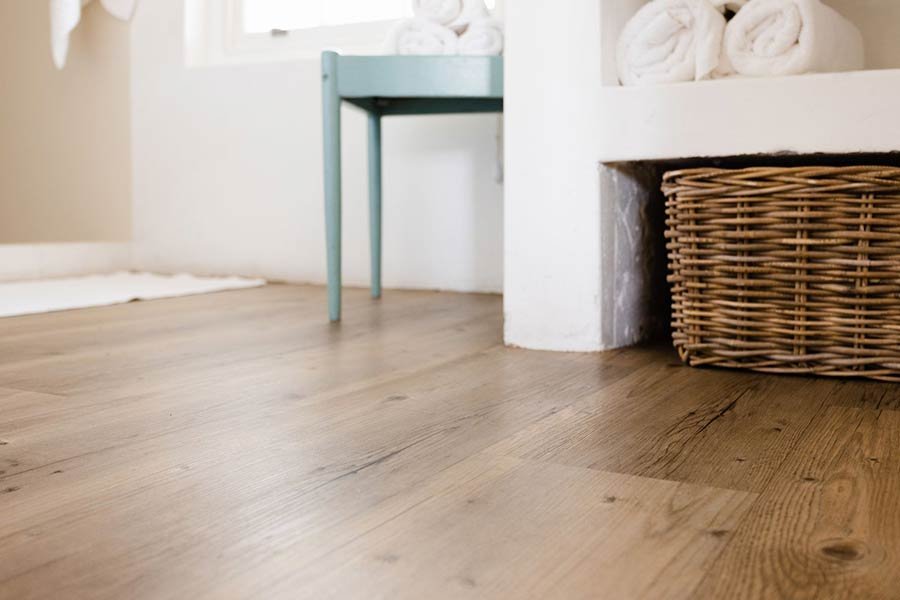
vinyl plank is a popular choice for homeowners due to its durability and ease of maintenance. Here are some tips to help keep your vinyl plank looking like new for years to come:
Regular cleaning:
Regular cleaning is the most critical aspect of maintaining vinyl plank. Dust, dirt, and other debris can scratch the surface of the planks, so it's important to sweep or vacuum the floor regularly to remove loose particles. For tougher spills and stains, clean the affected area with a mild soap and water solution, being careful not to saturate the floor with too much liquid.
Protect from moisture:
Vinyl planks are resistant to moisture, but it's essential to protect the floor from excessive moisture and water damage. Use mats and rugs near entryways to trap moisture, and avoid exposing the floor to standing water for extended periods.
Avoid harsh chemicals:
Avoid harsh chemicals on your vinyl plank, such as bleach or abrasive cleaners. These can damage the surface of the planks and may cause discoloration or other problems.
Use protective pads:
Use protective pads under furniture legs, and other heavy objects to prevent scratches and dents.
Follow the manufacturer's instructions:
Follow the manufacturer's instructions for cleaning and maintaining your vinyl plank. This will help ensure that the warranty remains in effect and that the floor will look great for years to come.
By following these simple maintenance tips, your vinyl plank will look great for years to come and provide you with a durable and low-maintenance flooring option for your home.
FAQ's
-
What is vinyl plank flooring made of? Vinyl plank flooring comprises a blend of PVC (polyvinyl chloride) and plasticizers molded into a plank form. The surface of each plank is then imprinted with a design or pattern, resulting in a realistic appearance and texture.
-
Are vinyl plank durable? Yes, vinyl planks are highly durable and resistant to scratches, dents, and moisture, making them an excellent choice for high-traffic home areas.
-
How easy is it to install vinyl plank? Many styles of vinyl plank can be installed as a floating floor, eliminating the need for adhesives and reducing installation time. Other types may require glue, but the installation process is still relatively straightforward and can often be completed by a DIY homeowner.
-
Is vinyl plank easy to clean? Yes, vinyl planks are easy to clean and maintain. Sweep or vacuum the floor regularly to remove loose debris, and use a mild soap and water solution to clean up spills and stains.
-
Can I install vinyl plank in a bathroom? Yes, vinyl planks are resistant to moisture and are an excellent choice for bathrooms and other wet areas of the home.
-
How do I protect my vinyl plank from scratches? Protect your vinyl plank from scratches, use protective pads under furniture legs and other heavy objects, and avoid using harsh chemicals on the floor.
-
Is vinyl plank affordable? Compared to other flooring options, such as hardwood or tile, vinyl planks are relatively inexpensive, making them an excellent choice for budget-conscious homeowners.
-
Are there different styles of the vinyl plank to choose from? Yes, there is a wide range of styles, colors, and textures to choose from when selecting vinyl plank. From realistic wood-look planks to tile-look planks, you're sure to find a style that suits your taste and budget.
Conclusion
In conclusion, vinyl planks are a versatile and affordable option for homeowners looking to renovate their homes. With a wide range of styles, colors, and textures, there's a vinyl flooring plank to suit every taste and budget. The easy installation process, low maintenance requirements, and long-lasting durability make vinyl plank a popular choice for homeowners looking for a flooring solution that's both functional and stylish. Whether you're renovating a single room or your entire home, vinyl plank is an excellent option for your next home renovation project.

